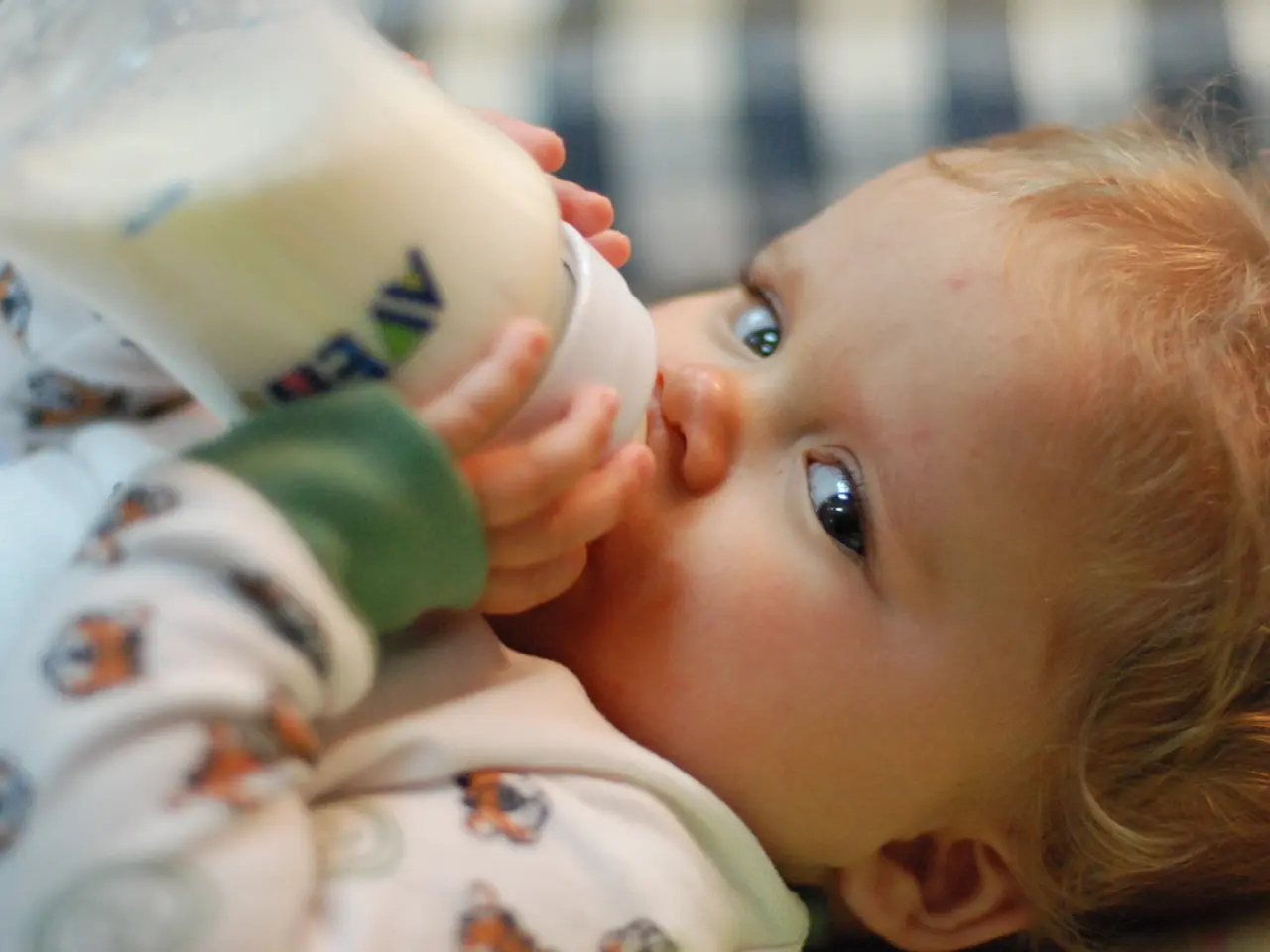Europe faces pressure to embrace breastfeeding as the norm
The "Baby-Friendly Community and Health Services" project, launched on World Breastfeeding Week, aims to extend the WHO–UNICEF Baby-Friendly Hospital Initiative (BFHI) standards beyond hospitals into community health services and the wider community. This ambitious project, led by the Norwegian Directorate of Health, seeks to increase breastfeeding rates and create breastfeeding-friendly environments across Europe.
The project's strategies are varied and far-reaching. They include engaging multiple community stakeholders, such as municipalities, schools, community health services, hospitals, and everyday community members, to create a caring, breastfeeding-supportive environment outside of health facilities. Practical supportive actions like infrastructure in schools and kindergartens for proper storage and feeding of expressed breastmilk, and integrating breastfeeding counseling and support systematically into routine maternal and child health services, are also key components of the project.
Moreover, the project aims to enforce multi-sectoral policies, including monitoring aggressive marketing of breastmilk substitutes, promoting family-friendly workplace policies with maternity leave and lactation breaks, and providing safe breastfeeding spaces at work. Strengthening community support networks to provide both emotional and practical assistance to breastfeeding mothers is another crucial aspect of the project.
The project's approach is exemplified by a pilot in Calabria, Italy, where 29 municipalities, health services, hospitals, and schools collaborate to create supportive environments tailored to local challenges. The initiative, spanning five community health services, two hospitals, and a wide range of schools, aims to pilot actions outside health services, especially in less advantaged areas, to create breastfeeding-friendly environments.
The project views breastfeeding not solely as a personal choice but a collective investment in public health that requires coordinated community and health service action to nurture early life nutrition and healthy child development. Breastfeeding has far-reaching implications for future public health, as it lowers women's risk of breast cancer and protects babies from infections, obesity, diabetes, and other noncontagious diseases.
To improve training for health professionals, a new e-learning platform called BreastFEEDucation is being developed. Regulation loopholes, particularly around digital marketing of breastmilk substitutes, are also being addressed.
The project has already been recognised as an EU Best Practice in 2022 in Norway. However, many European countries lack basic data on breastfeeding rates, indicating a low priority for the issue. WHO/Europe is collaborating with local governments to track key indicators for breastfeeding progress.
The debate between breastfeeding and formula-feeding remains ongoing, and the statement "Breast is best" is being questioned. Formula-fed babies may have greater incidences of obesity, asthma, and allergies. There are also concerns about the higher risk of gastrointestinal disorders, infections, and other long-term health complications for formula-fed babies.
Despite these concerns, the project's successes are evident. Small changes in Calabria include allowing parents to leave expressed breastmilk for teachers to feed to their children and encouraging local workers to support parents. A personal account shared through a blog post even detailed the use of the Dr Jay Gordon method to wean a child.
In conclusion, the "Baby-Friendly Community and Health Services" project is a significant step towards creating breastfeeding-friendly environments across Europe. By engaging multiple stakeholders and implementing practical supportive actions, the project aims to increase exclusive breastfeeding rates, sustain breastfeeding beyond six months, and support infant nutrition as a public health priority.
- The "Baby-Friendly Community and Health Services" project extends the WHO–UNICEF Baby-Friendly Hospital Initiative (BFHI) standards into community health services and the wider community, promoting mental health, nutrition, and women's health.
- The project's strategies involve engaging schools and community health services to create infrastructure for proper storage and feeding of expressed breastmilk and integrating breastfeeding counseling into routine maternal and child health services.
- To create breastfeeding-friendly environments, the project also advocates for family-friendly workplace policies with maternity leave, lactation breaks, and safe breastfeeding spaces at work, as well as strengthening community support networks.
- The project recognizes the importance of breastfeeding for not only infant nutrition and healthy child development but also for the health of women, lowering their risk of breast cancer and protecting babies from infections, obesity, diabetes, and other noncontagious diseases.




